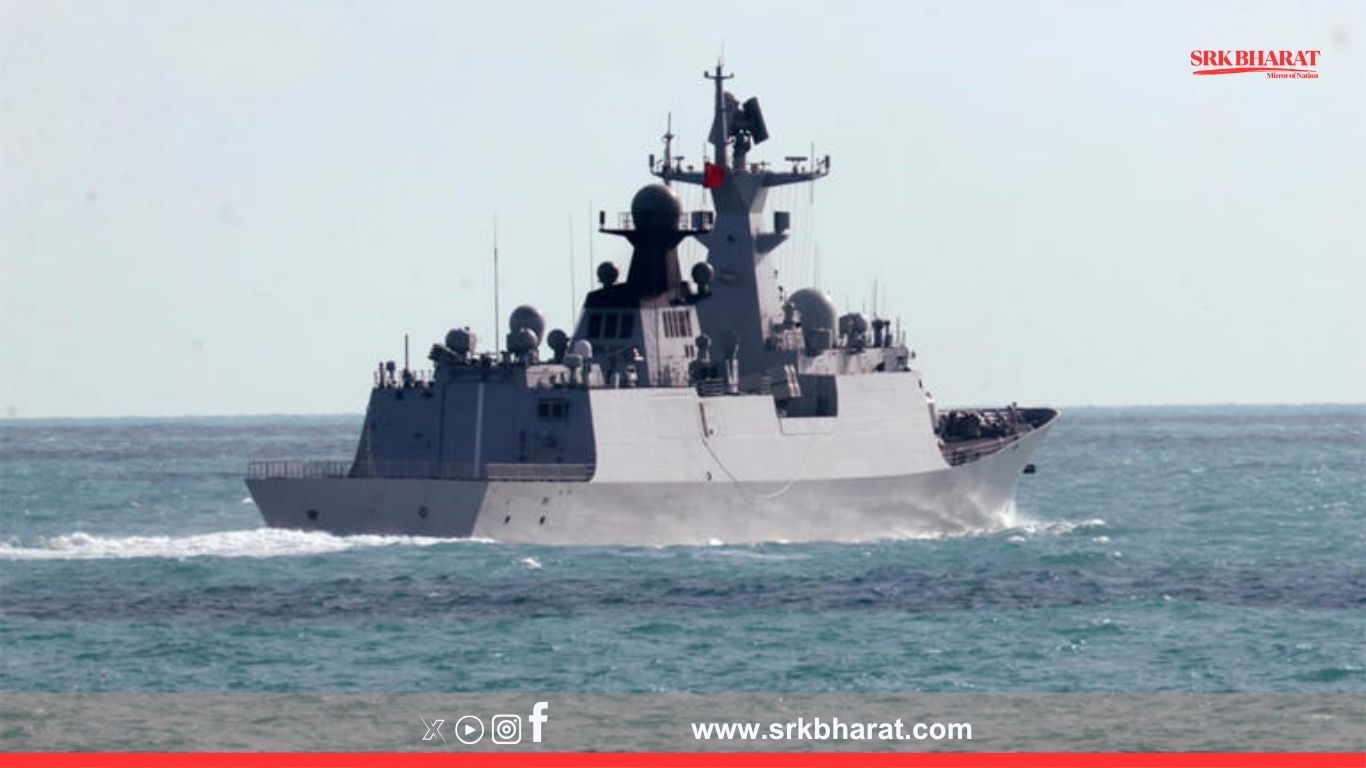In a significant escalation of maritime tensions, Germany has accused China of carrying out a military-grade laser attack on one of its naval security aircraft during operations in the Red Sea. German defence authorities described the act as “entirely unacceptable,” warning that such aggressive manoeuvres threaten the safety of international forces engaged in critical security missions in the region.
Incident Details: Chinese Laser Targets German Security Aircraft
According to the German Defence Ministry:
- A German Navy P-3C Orion maritime patrol aircraft, deployed as part of EU naval operations in the Red Sea to secure commercial shipping lanes against Houthi threats, was targeted by a laser from a Chinese warship.
- The laser illumination was strong enough to temporarily dazzle or blind aircrew sensors, posing a severe operational and navigational hazard.
- The incident took place last week when the aircraft was patrolling in international waters under coordinated maritime security operations with EU partners.
Germany’s Official Response
Germany’s Defence Minister Boris Pistorius condemned the incident stating:
“This is an entirely unacceptable act that endangers our servicemen and undermines the collective security missions we are conducting to stabilise vital shipping routes. We expect China to adhere to international norms and ensure such reckless behaviour is not repeated.”
The German Foreign Ministry has formally lodged a diplomatic protest with Beijing demanding clarification and assurance against future escalatory actions.
China’s Position So Far
The Chinese Defence Ministry has not issued any official response as of Tuesday morning. However, Chinese state media outlets quoted anonymous defence analysts denying that the People’s Liberation Army Navy (PLAN) ships engaged in any “provocative laser illumination,” suggesting that Western patrols were “intruding near PLAN operational exercises.”
Why Was Germany Operating In The Red Sea?
Germany is part of the EU Naval Force (EUNAVFOR) Operation Aspides, recently launched to safeguard international shipping through the Red Sea and Gulf of Aden amid increasing attacks by Yemen’s Iran-backed Houthi rebels targeting commercial vessels. Key features:
| Operation | Objective | Key Participants |
|---|---|---|
| EUNAVFOR Aspides | Escort and protect merchant shipping from drone and missile attacks | Germany, France, Italy, Greece, Belgium |
Germany’s P-3C Orion aircraft conducts surveillance, anti-submarine, and maritime security patrols in support of this mission.
Global Context: Military Laser Incidents In Maritime Zones
| Year | Country Involved | Incident | Outcome |
|---|---|---|---|
| 2018 | USA-China | US Navy P-8A targeted by Chinese laser near Djibouti | US lodged protest; China denied deliberate targeting |
| 2020 | Australia-China | Australian helicopter targeted by laser from Chinese vessel in South China Sea | Australia raised issue diplomatically |
| 2023 | Philippines-China | Philippine Coast Guard ship crew temporarily blinded by Chinese laser | Philippines condemned “aggressive action” |
Military-grade lasers are used by naval forces for rangefinding and dazzling sensors but their use against aircraft crew is viewed as a hostile, unsafe, and escalatory act under international maritime and aviation safety protocols.
Germany-China Relations: Strategic Sensitivities
Germany has maintained complex relations with China:
- Major trade partner: China is Germany’s largest non-EU trading partner.
- EU’s Indo-Pacific approach: Germany supports EU’s freedom of navigation missions, which often overlap with Chinese military presence.
- Recent geopolitical shifts: Germany has joined NATO and EU allies in criticising China’s assertiveness in the South China Sea and Indo-Pacific.
Expert Opinions On The Laser Attack Incident
| Expert | Organisation | Comment |
|---|---|---|
| Dr. Sarah Kirchberger | Head of Asia-Pacific Strategy, Kiel University | “This laser targeting represents deliberate signalling by China, showing its willingness to challenge EU military presence beyond East Asia.” |
| Rear Admiral (Retd) James Goldrick | Australian Naval Analyst | “Targeting an aircraft with lasers is dangerous. It can cause permanent eye injuries and impairs safety-critical operations.” |
| Alexander Neill | Strategic Analyst, Singapore | “This indicates China’s growing confidence to project power even in distant waters like the Red Sea.” |
Implications For Regional And Global Security
- Escalation Risks: Such incidents raise chances of unintended clashes in crowded maritime zones with multiple navies operating simultaneously.
- EU-China Tensions: Could strain already sensitive EU-China ties over trade restrictions, technology security, and Taiwan.
- International Maritime Norms: Undermines conventions safeguarding unimpeded and safe passage of surveillance and patrol aircraft.
Recent Chinese Naval Deployments In The Red Sea
China maintains a permanent naval presence at its first overseas military base in Djibouti, near the strategic Bab el-Mandeb chokepoint:
- PLAN Escort Task Groups: Regular deployments to escort Chinese flagged vessels through pirate-prone waters.
- Base Facilities: Logistics and refuelling support for anti-piracy, evacuation, and strategic presence missions.
- Joint Exercises: Conducts joint drills with regional navies, enhancing its influence across the Horn of Africa.
Social Media And Strategic Community Reactions
- “Germany rightly calls out China’s reckless laser attack. Such actions risk crew safety and regional security.”
- “China denies laser incidents every time but the pattern is worrying.”
- “Red Sea is becoming another flashpoint for major power contestation.”
Future Outlook: What Could Happen Next?
| Scenario | Potential Outcome |
|---|---|
| China issues clarifying statement | May claim it was unintentional illumination during exercises |
| No response from China | EU may escalate diplomatic protests, raise issue at international maritime forums |
| Repeat incidents | Could lead to operational restrictions, military standoffs, and greater naval build-up in the region |
Conclusion
Germany’s sharp condemnation of China’s alleged military laser targeting of its aircraft underscores growing maritime insecurity even in regions far from traditional Indo-Pacific flashpoints. As Chinese naval presence expands alongside Western security missions, managing unintended escalations and reinforcing international maritime safety norms will be critical to maintaining stability in the Red Sea and beyond.
Disclaimer
This news article is prepared for general defence, maritime security, and geopolitical news dissemination based on official statements, expert analyses, and operational context. Readers are advised to consult government releases, Ministry of Defence updates, and certified strategic analysts for precise professional insights before deriving conclusions or framing policy, investment, or operational decisions related to international security developments.











